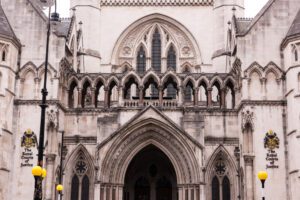The sixth day of the ongoing High Court trial between PPE Medpro and the Department of Health and Social Care (DHSC) turned its focus to one of the central issues of the £122 million legal dispute — the sterility of the surgical gowns at the heart of the case.
PPE Medpro’s legal team called expert witness Professor Anthony Coates, a leading microbiologist, to give evidence on the government’s claims that the gowns were unfit for use due to microbial contamination. What followed was a detailed and at times pointed examination of the methodology and conclusions behind the DHSC’s gown testing regime.
Test samples ‘not representative’
Coates was highly critical of the government’s testing practices. Under examination by Charles Samek KC, he argued that the samples taken from the PPE Medpro gowns were not representative of the full shipment and were handled in such a way that made them unreliable as evidence of original contamination.
Central to his concern was the time lag between delivery and testing. Coates explained that some gowns were tested over a year after arrival and had been stored in unknown conditions — including open-air container parks — which could have exposed them to contamination after the fact.
“You cannot determine the sterility of a gown a year later when it’s been stored in containers without knowing the exact environmental conditions,” Coates told the court.
Questions over gown handling and testing controls
He also raised red flags about the lack of proper chain-of-custody documentation, noting that gown batch numbers and container IDs were not always linked to test results — a serious issue in sterility testing protocols. In the absence of these records, Coates said, the possibility of post-delivery contamination could not be ruled out.
The professor added that the lab handling the tests — Sheffield-based Swann-Morton — had no documented testing controls in place, no historical contamination data, and did not appear to conduct comparative testing against known sterile controls. This, he said, would be standard practice in such assessments and casts further doubt on the findings.
“The lack of positive and negative controls means we cannot know whether the lab environment itself contributed to contamination,” Coates said.
Coates also offered an alternative explanation for the bacteria found on the gowns. Rather than indicating manufacturing or packaging failures in China, the organisms identified — such as Staphylococcus epidermidis — were consistent with environmental or skin flora, suggesting they may have been introduced through handling in the UK.
He questioned the presence of several bacteria types that appeared only in one or two samples, calling this distribution “random and inconsistent with a single-source manufacturing contamination.”
Useability not properly explored
During cross-examination by DHSC’s counsel, Coates stood by his opinion that the data could not support the conclusion that the gowns were non-sterile at the point of manufacture. He also reinforced a point raised by PPE Medpro earlier in the trial — that the DHSC never explored whether the gowns could be repurposed for non-sterile use.
When pressed about whether he could guarantee the gowns were safe, Coates was clear that he could not — but argued that the DHSC had not proved they were unsafe either, at least not at the point of delivery.
“If the government’s case is that these gowns were unsterile at manufacture, they need better evidence,” he said.
Professor Coates’ evidence marks a crucial moment in the trial, as sterility concerns are central to the DHSC’s claim for breach of contract. If the government cannot convincingly establish that the gowns were contaminated before delivery — or that it followed appropriate testing protocols — its justification for rejecting the PPE Medpro shipment could come under serious legal challenge.
The court will continue on Wednesday 25 June, when further expert witnesses are expected to be cross-examined.
